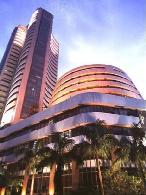 The index of industrial production, which was negative in March, was positive in April - but just barely.
The index of industrial production, which was negative in March, was positive in April - but just barely. It rose by 0.1 per cent, according to figures released on Tuesday, compared to 5.3 per cent a year ago. Manufacturing output grew at only 0.1 per cent as well.
Mining contracted by 3.1 per cent, intermediate goods by 1.4 per cent, and capital goods by 16.3 per cent, revealing that the backbone of the manufacturing economy is weakened.
Coming on top of anaemic GDP growth for the fourth quarter of 2011-12, and predictions of a deficient monsoon, it appears likely that economic growth will stay well below trend for some time to come.
Indeed, if industrial production stays so low, it is difficult to see how even pessimistic estimates of GDP growth for 2012-13, of around 6.5 per cent, will be met.
The pressure on the Reserve Bank of India (RBI) to cut rates is correspondingly stronger, given how far below trend growth India appears to be. The RBI is due to release its next credit policy on Monday, June 18.
It surprised markets in its last announcement, cutting rates by 50 basis points. That was, however, accompanied by an unusually firm guidance downplaying the probability of future cuts, because of the lack of space for such policy.
Inflation remains high, with the wholesale price index at 7.23 per cent in April, and likely to rise when the May figures are released on Thursday.
This is well out of the RBI's comfort zone, and inflation hawks will continue to warn that food inflation and changes in administered oil prices might work their way into generalised inflation, but growth, as the IIP numbers for April have shown, is emerging as a bigger concern.
There is also a strong case that the RBI should be ready to act in anticipation of a possible catastrophic event emerging from Europe. The implications of a disorderly exit by Greece from the euro for the banking and credit system are far from clear.
If credit were to dry up across the international financial system, as it did following the collapse of Lehman Brothers in 2008, the RBI should be ready to cut rates sharply. After Greece's next round of national elections, the future path of the euro will become clearer; but they are scheduled for Sunday, and the results may not be known in time for Monday's credit policy.
The RBI is, thus, faced with a dilemma. Adding to its dilemma will be the sense of powerlessness caused by the sheer dominance of fiscal policy over monetary policy, thanks to the Centre's borrowing.
The Budget for this year set aside Rs 43,580 crore for fuel subsidies, for example. Oil companies' under-recoveries on diesel, LPG and kerosene last year were Rs 11,545 crore a month.
In other words, the government will likely have burned through this year's allocation for fuel subsidies by the end of this month.
It will need to borrow; indeed Rs 44,000 crore has already been borrowed so far this financial year, including an auction of Rs 12,000 crore of 10-year government bonds on Tuesday.
Given the scale of these open-market operations, will changing the repo rate truly affect the cost of capital and stimulate growth? In spite of such dilemmas, however, the RBI must not delay cutting the repo rate and should hope that the government too will reduce subsidies and end its fiscal profligacy.












 © 2025
© 2025